
GEGSLA Working Groups
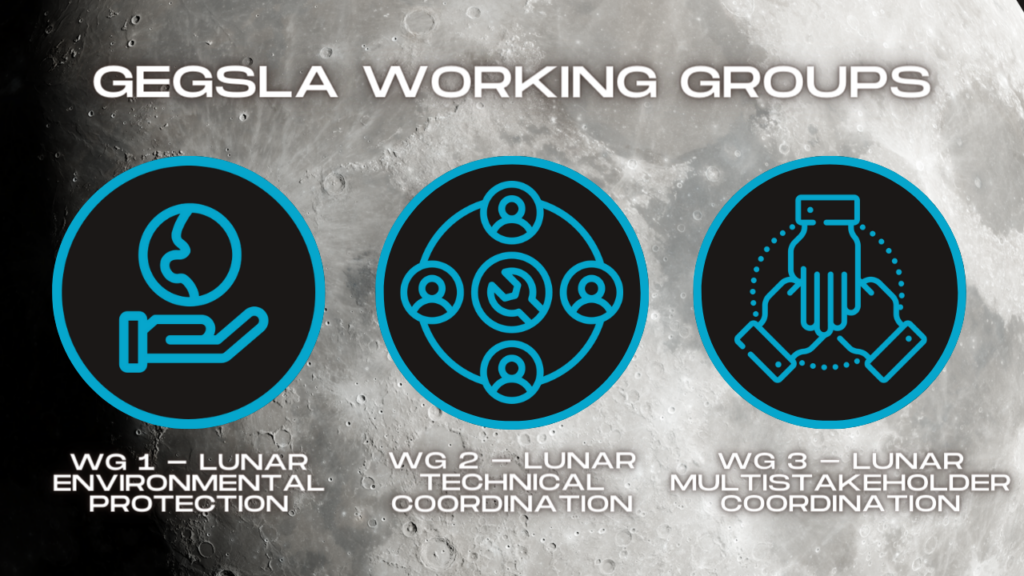
WG 1: Lunar Environmental Protection
The Lunar Environmental Protection Working Group (WG1) constitutes an integral component of the GEGSLA Operational Phase, dedicated to addressing critical priorities related to the safeguarding and preservation of the lunar environment for the sustainable advancement of human activities. Functioning within the framework of the GEGSLA, WG1 is resolute in its commitment to clarifying the meaning of “harmful contamination” as specified in Article IX of the OST, and assessing the need for its expansion to encompass other forms of detrimental interference. WG1 is further charged with the evaluation of lunar environmental sectors and locales meriting protection against contamination and other interferences, thereby ensuring the conservation of their scientific, cultural, and aesthetic significance. The overarching objective of WG1 is to present recommendations conducive to the safeguarding of these environments, fostering an environment where human lunar activities coexist harmoniously with the lunar landscape.
Co-Chairs
Alice Gorman, Flinders University, Australia
Farah Diya Yasmine, Farah Law School, Indonesia

Members
Anne-Sophie Martin, Institute for International Legal Studies (ISGI-CNR), Italy
Jean-Claude Worms, COSPAR, France
David Kendall, Outer Space Institute, Canada
Edvaldo Silva, CESMAC University Centre, Brazil
Ian Crawford, Birkbeck University of London, UK
Flavia Alvim de Carvalho, EJUSP and PUC Minas, Brasil
Frank Koch, Orbit Recycling, Germany
Naresh Kannan, University of Rostock, Germany, United Kingdom
Green Richard F, International Astronomical Union (IAU)
Saleem Zoghbi, United Nations University
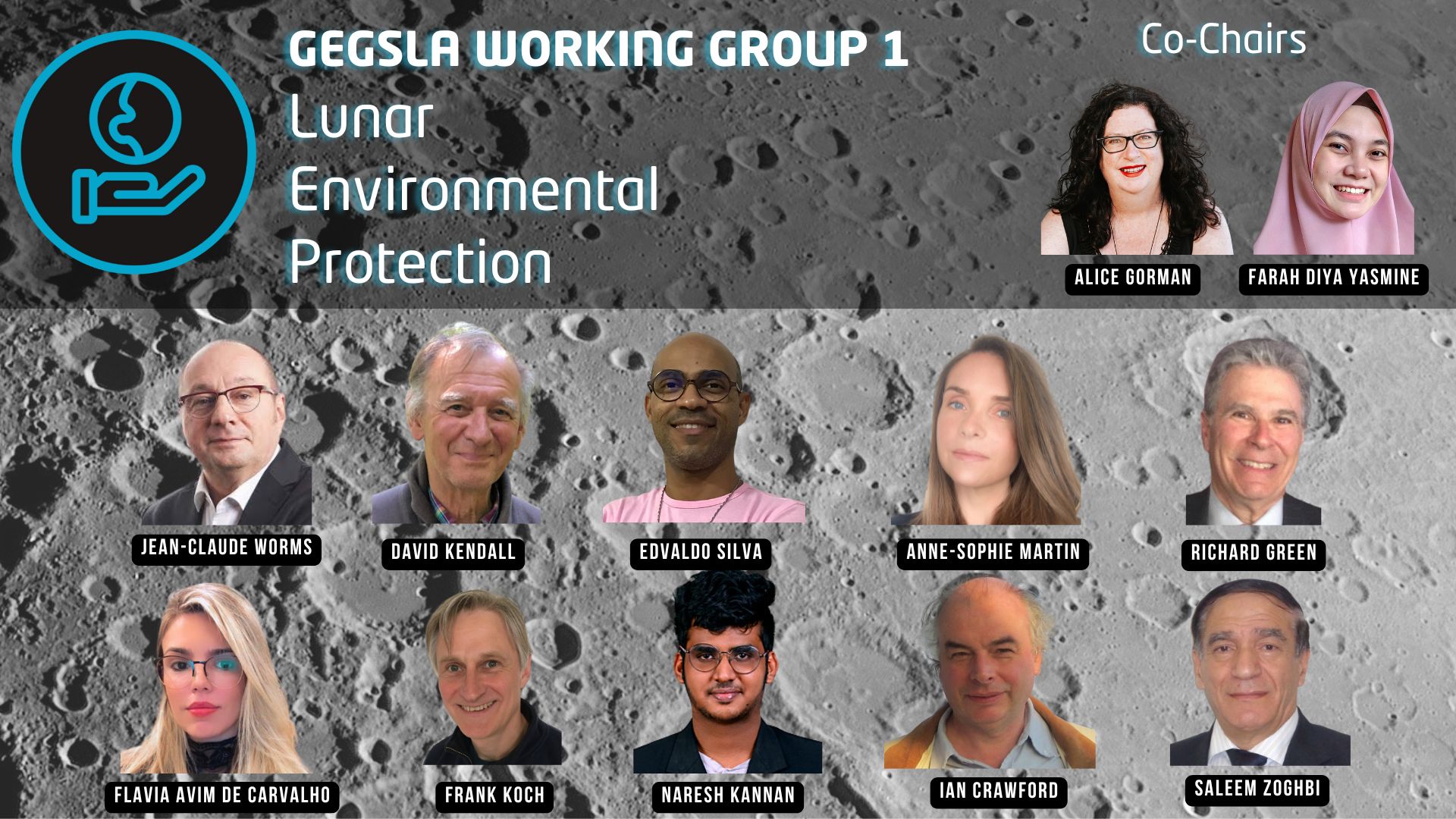
WG 2: Lunar Technical Coordination
The Lunar Technical Coordination Working Group (WG 2) is a vital component of the GEGSLA Operational Phase, focusing on coordinating technical standards, protocols, and best practices to ensure safe and efficient lunar activities. WG 2 serves as a platform for facilitating the exchange of information among organizations engaged in lunar surface missions or planning them. This group plays a key role in communicating the GEGSLA Recommended Framework to the lunar stakeholder community and receiving feedback, especially for chapters 5, 6, and 7. Furthermore, WG 2 is dedicated to identifying and prioritizing the essential best practices that ensure safe lunar activities while safeguarding the lunar environment. The group also strives to promote the implementation of these best practices among organizations operating on the lunar surface. Lastly, WG 2 aims to foster compatibility and interoperability by coordinating technical standards in support of its overarching objectives.
Co-Chairs
Timothy Cichan, Lockheed Martin, USA
Marchel Holle, iSpace, Japan

Members
Arvind Ramana, Australian Space Agency, Australia
Carlos Mariscal, Dereum Labs, Mexico
Clara Richard, ICAD/DSI/SGAC, Spain/UK
Ekaterina Seltikova, Technical Unit Research for a Thriving Lunar Ecosystem, SGAC France
Hassan Abouseada, Egyptian Space Agency, Egypt
Laura Champion, Lockheed Martin, USA
Madison Feehan, Space Copy / NASA, Canada
Omolade Odetara Leanspace, France
Suzanne Gillen, Redwire, USA
Bernd J. Hoefer, A9C Capital WLL, Bahrain / DiMOS Operations GmbH, Germany Bahrain
Shreya Santra, Department of Aerospace Engineering, Tohoku University, Japan
Tufan Kayaci, Turkish Space Agency (TUA), Turkiye
Quan Haofang, Director of CASI, China
Güneş Ünüvar, University of Luxembourg/WOUD Law
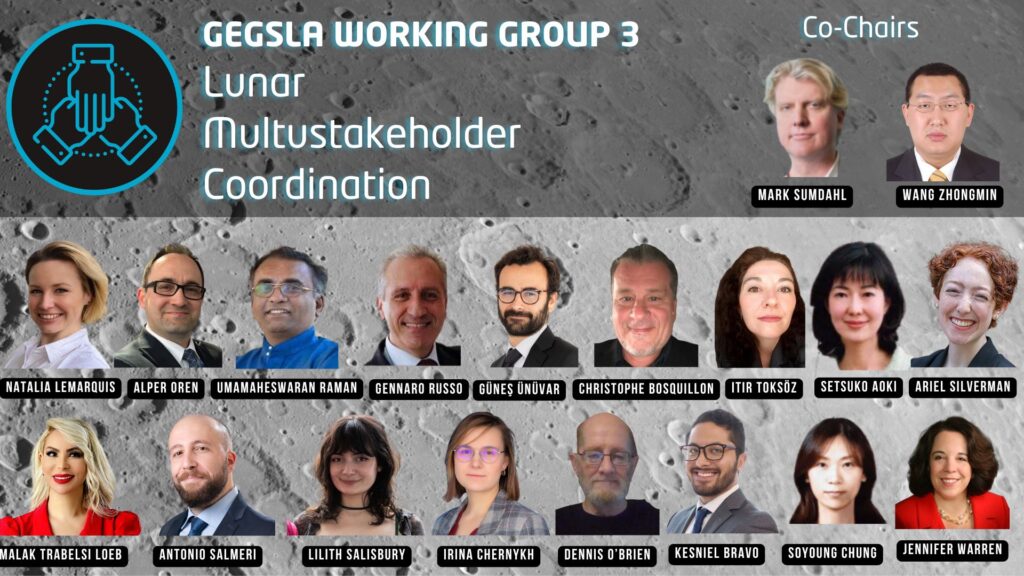
WG 3: Lunar Multi-stakeholder Coordination
The Lunar Multi-Stakeholder Coordination Working Group (WG 3) operates within the GEGSLA Operational Phase and plays a crucial role in facilitating collaboration and coordination among diverse stakeholders to ensure peaceful, safe, and sustainable lunar activities. WG 3’s key objective is to enhance coordination among lunar stakeholders to mitigate risks in future lunar missions and promote a harmonious lunar exploration and settlement. WG 3 aims to create the International Committee on Lunar Operations (ICLO), an affiliated body of the United Nations, to coordinate states and other lunar stakeholders at operational and policy levels. WG3’s work plan includes regular meetings to develop a proposal for ICLO creation, which will be presented in the final report submitted to the Plenary Meeting of GEGSLA and to COPUOS by the Moon Village Association (MVA) as a permanent observer.
Co-Chairs
Mark Sundahl, Cleveland State University, USA
Dr. Wang, Zhongmin, Deep Space Exploration Laboratory

Members
Alper Oren, Department of Aerospace and Aeronautics, Eskisehir Technical University, Turkey
Ariel Silverman, Yenching Academy of Peking University, China
Christophe Bosquillon, Autonomous Space Futures Ltd, Greece
Dennis O’Brien, The Space Treaty Project, USA
Antonino Salmeri, Lunar Policy Platform, Spain
Gennaro Russo, Italian Institute for the Future, Italy
Irina Chernykh, RUDN University, Russia
Itir Toksöz, Dogus University, Turkey
Jennifer Warren, Lockheed Martin, USA
Kesniel Bravo, Mexican Space Agency, Mexico
Parameswaran Sreekumar, Manipal Academy of Higher Education, India
Setsuko Aoki, Keio University Law School, Japan
Malak Trabelsi, Loeb Vernewell Group, UAE
Lilith Salisbury, Leiden University, Space Court Foundation, SGAC, United Kingdom
Natalia Lemarquis, GMV Innovating Solutions, United Kingdom
Raman Umamaheswaran, Ιndia
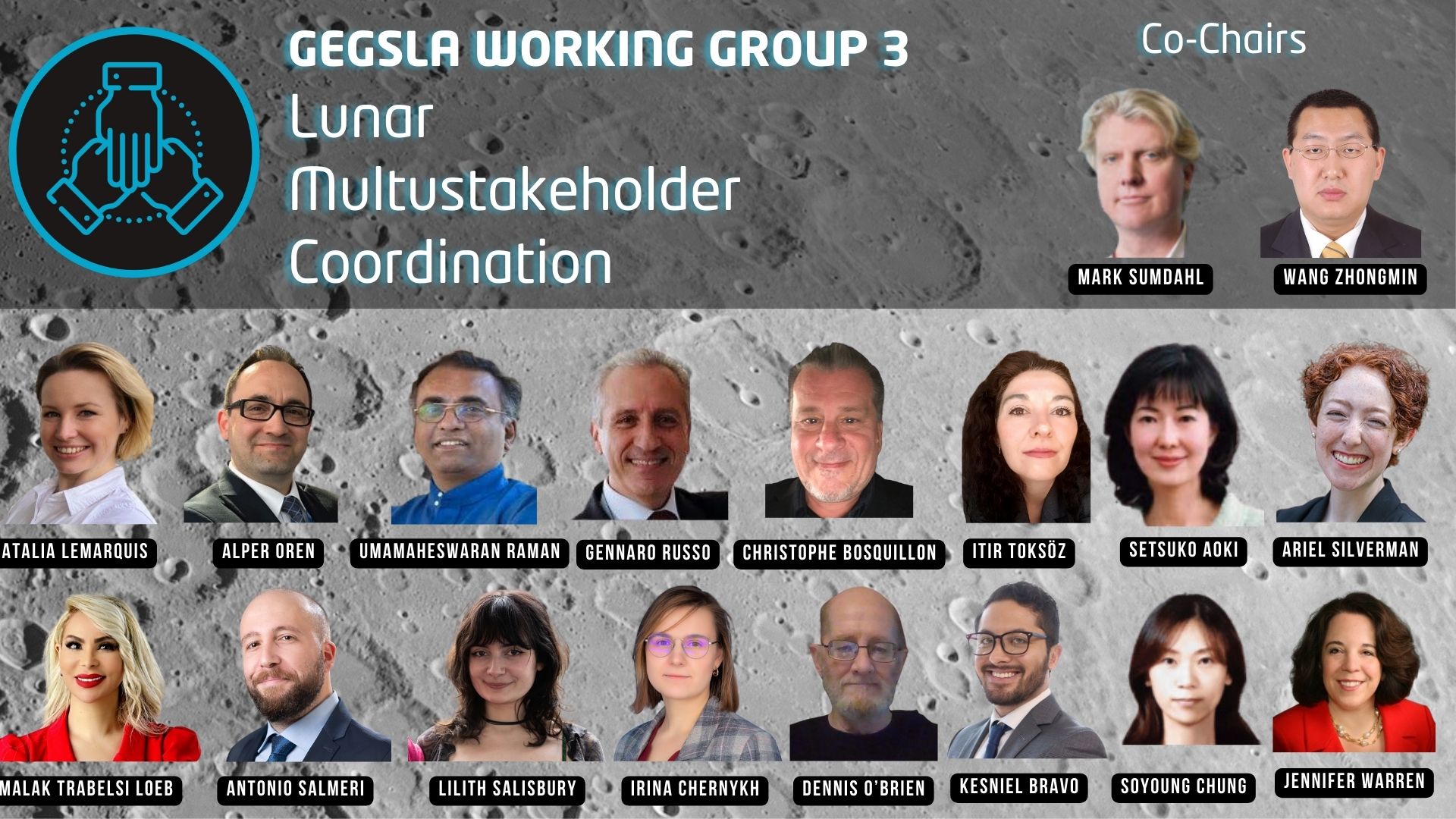
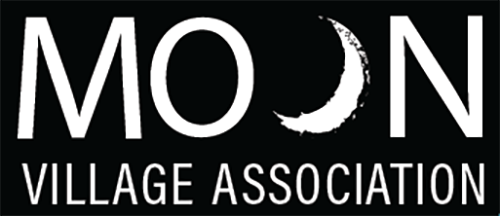
You must be logged in to post a comment.